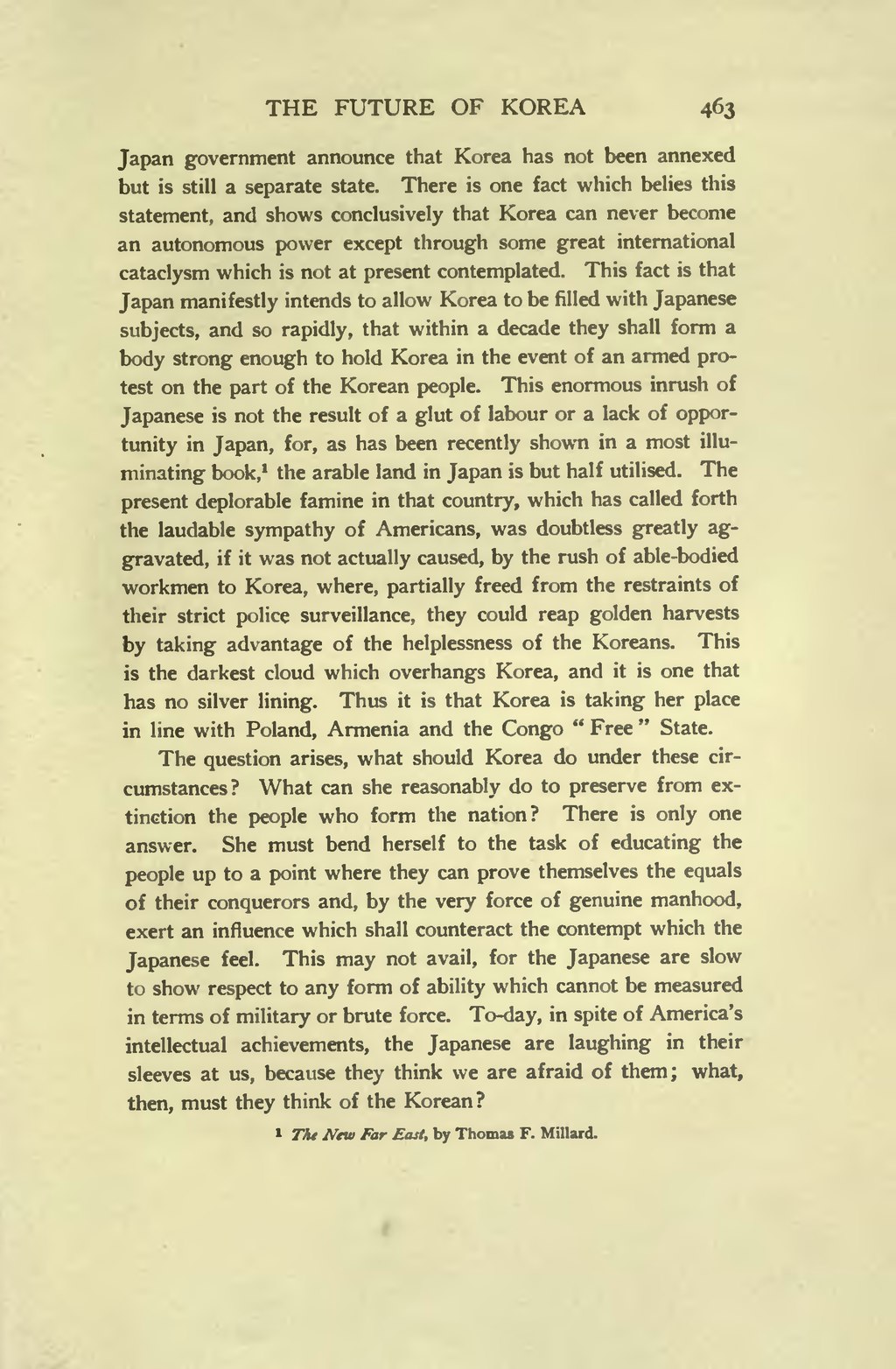Japan government announce that Korea has not been annexed but is still a separate state. There is one fact which belies this statement, and shows conclusively that Korea can never become an autonomous power except through some great international cataclysm which is not at present contemplated. This fact is that Japan manifestly intends to allow Korea to be filled with Japanese subjects, and so rapidly, that within a decade they shall form a body strong enough to hold Korea in the event of an armed protest on the part of the Korean people. This enormous inrush of Japanese is not the result of a glut of labour or a lack of opportunity in Japan, for, as has been recently shown in a most illuminating book,[1] the arable land in Japan is but half utilised. The present deplorable famine in that country, which has called forth the laudable sympathy of Americans, was doubtless greatly aggravated, if it was not actually caused, by the rush of able-bodied workmen to Korea, where, partially freed from the restraints of their strict police surveillance, they could reap golden harvests by taking advantage of the helplessness of the Koreans. This is the darkest cloud which overhangs Korea, and it is one that has no silver lining. Thus it is that Korea is taking her place in line with Poland, Armenia and the Congo "Free" State.
The question arises, what should Korea do under these circumstances? What can she reasonably do to preserve from extinction the people who form the nation? There is only one answer. She must bend herself to the task of educating the people up to a point where they can prove themselves the equals of their conquerors and, by the very force of genuine manhood, exert an influence which shall counteract the contempt which the Japanese feel. This may not avail, for the Japanese are slow to show respect to any form of ability which cannot be measured in terms of military or brute force. To-day, in spite of America's intellectual achievements, the Japanese are laughing in their sleeves at us, because they think we are afraid of them; what, then, must they think of the Korean?
- ↑ The New Far East, by Thomas F. Millard.
